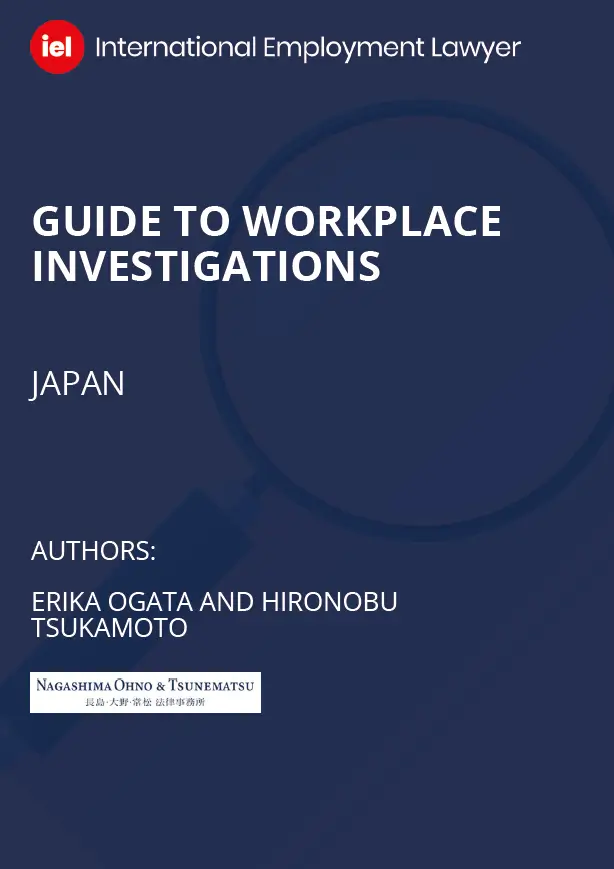
NO&T Asia Legal Review
On 16 September 2022, the Department of Labor and Employment (“DOLE”) issued Department Order No. 237, series of 2022 on the revised implementing rules and regulations of the Telecommuting Act (the “Revised Rules”), which supersede Department Order No. 202, series of 2019.
The Telecommuting Act (Republic Act No. 11165) which became effective on 10 May 2019, allowed employers to offer a telecommuting program to employees on a voluntary basis, provided that minimum labor standards continue to be met, the telecommuting employees are given fair treatment comparable to those working at the employer’s premises, and data protection principles are observed.
The Revised Rules affirm the policy of the government to encourage employers and employees to jointly adopt and implement telecommuting programs to optimize the benefits of technology, taking into consideration an employee’s competencies, available technologies and resources, nature of work to be done and other practical considerations. However, there may be additional points that must be considered for businesses engaged in the information technology-business process management (“IT-BPM”) sector and registered with the Philippine Economic Zone Authority (“PEZA”), which we further discuss below.
The Revised Rules apply to employers and employees in the private sector that implement a telecommuting program. The Revised Rules provide that terms and conditions of telecommuting shall not be less than minimum labor standards, and not diminish or impair the terms and conditions of employment in employment contracts, company policies or practices, or collective bargaining agreements.
Work performed in the alternative workplace is still considered as work performed in the regular workplace of the employer, and the time the employer is required to be on duty and rendering work in the alternative workplace shall still be counted as hours worked.
The telecommuting program may be in the form of a separate policy or incorporated into existing policies or employment contracts. The employer or the employee may propose the telecommuting program, which will be adopted on such terms as may be mutually agreed upon.
The Revised Rules provide for clearer guidelines on the provisions that must be included in a telecommuting program, which include:
a) Eligibility criteria to participate in the telecommuting program (e.g., job qualification, nature or functional areas of work, roles and positions, personal circumstances, past performance, etc.)
b) Acceptable alternative workplaces including minimum requirements for computer hardware and software (e.g., internet connectivity, security and terminals)
c) Occupational safety and health standards, such as ergonomics, good housekeeping, mental health programs as reasonably necessary
d) Performance evaluation standards for telecommuting employees, including means of communicating feedback or addressing performance issues
e) Code of Conduct such as attendance, appearance and demeanor during virtual meetings, and other measures to ensure compliance with work standards
f) Data protection, confidentiality and security
g) Emergency protocols or contingency plans to address device breakdown, power interruption, weather disturbances and other events
h) Duration of the telecommuting, such as termination or change of work arrangement due to business necessity
i) Dispute resolution to resolve employee grievances from the implementation and enforcement of the program, which shall include an agreement for referral to voluntary arbitration
Telecommuting employees shall be covered by the same set of applicable rules, company policies or existing collective bargaining agreements. Employers shall also ensure that telecommuting employees are given same treatment as employees working at the employer’s premises, such as with respect to (a) the rate of pay, including overtime pay and other benefits, (b) the right to rest days and regular holidays, (c) workload and performance standards, provided that parties may mutually agree to different performance standards that may be more appropriate, and (d) access to training and career development opportunities without additional costs.
Employers are also required to ensure that measures are taken to prevent the telecommuting employee from being isolated from the rest of the employees in the company, by giving the telecommuting employee opportunities to meet (physically or through telecommunication) with colleagues and allow access to the employer’s premises and company information.
The Revised Rules also clarify that facilities, equipment and supplies to implement the telecommunicating program, including expenses for the acquisition, proper handling, usage, maintenance, repair and return of such facilities, equipment and supplies are considered the ordinary and necessary costs of the business of the employer.
Employers are required to notify the DOLE of the implementation of the telecommuting arrangement through the DOLE’s establishment report system. Further, employers should keep and maintain for at least three (3) years the documents and records proving that parties voluntary adopted telecommuting.
PEZA-registered IT-BPM businesses will have to note the requirements of the Fiscal Incentives Review Board (“FIRB”) in considering whether to adopt, or continue current telecommuting arrangements, as it may have an impact on their fiscal incentives.
Section 309 of the National Internal Revenue Code, as amended by the Corporate Recovery and Tax Incentives for Enterprises Act (the “CREATE Act”), requires that registered projects or activities should be exclusively conducted within the geographical boundaries of the economic or freeport zone being administered by the relevant investment promotion agency (“IPA”) (e.g., PEZA) and that any project or activity conducted or performed outside the economic or freeport zone shall not be entitled to incentives, unless such project or activity is conducted or operated under another IPA.
The FIRB, which has power to exercise policy making and oversight functions in the administration and grant of incentives by IPAs, has issued Resolution No. 026-22 dated 14 September 2022, allowing PEZA-registered IT-BPM businesses an extension of until 31 December 2022 to temporarily adopt work from home arrangements not exceeding 30% of their total workforce without adversely affecting their income tax incentives under the CREATE Act. Registered business enterprises exceeding the 30% threshold shall not be entitled to avail of the fiscal and non-fiscal incentives for the months their enterprises were non-compliant.
However, subject to the procedures outlined in FIRB Resolution No. 026-22, affected registered enterprises in the IT-BPM sector may be allowed to transfer their registration to the Board of Investment until 31 December 2022 and adopt up to 100% work from home arrangements. In the meantime, a Senate bill has been filed proposing to amend Section 309 of the National Internal Revenue Code in order to allow such entities to adopt work from home arrangements while still retaining their fiscal incentives.
While the suitability of telecommuting varies across occupations and business sectors, the updates to the implementing rules of the Telecommuting Act signal that remote or hybrid work arrangements have indeed become part of the “new normal”, and companies should keep in mind the Revised Rules when navigating through the opportunities and challenges of implementing such work arrangements.
This newsletter is given as general information for reference purposes only and therefore does not constitute our firm’s legal advice. Any opinion stated in this newsletter is a personal view of the author(s) and not our firm’s official view. For any specific matter or legal issue, please do not rely on this newsletter but make sure to consult a legal adviser. We would be delighted to answer your questions, if any.


Patricia O. Ko


(April 2025)
Shiro Kato, Chihiro Shimaoka (Co-author)


(January 2025)
Hironobu Tsukamoto, Eriko Ogata (Co-author)


Luciana Fransiska


Patricia O. Ko


(April 2025)
Shiro Kato, Chihiro Shimaoka (Co-author)


(January 2025)
Hironobu Tsukamoto, Eriko Ogata (Co-author)


Luciana Fransiska


Patricia O. Ko


Ngoc Hoang


Yuan Yao Lee


Chattong Sunthorn-opas, Thunsinee Sungmongkol (Co-author)


Patricia O. Ko


Ngoc Hoang


Yuan Yao Lee


Chattong Sunthorn-opas, Thunsinee Sungmongkol (Co-author)


Patricia O. Ko


Patricia O. Ko


Patricia O. Ko


Patricia O. Ko